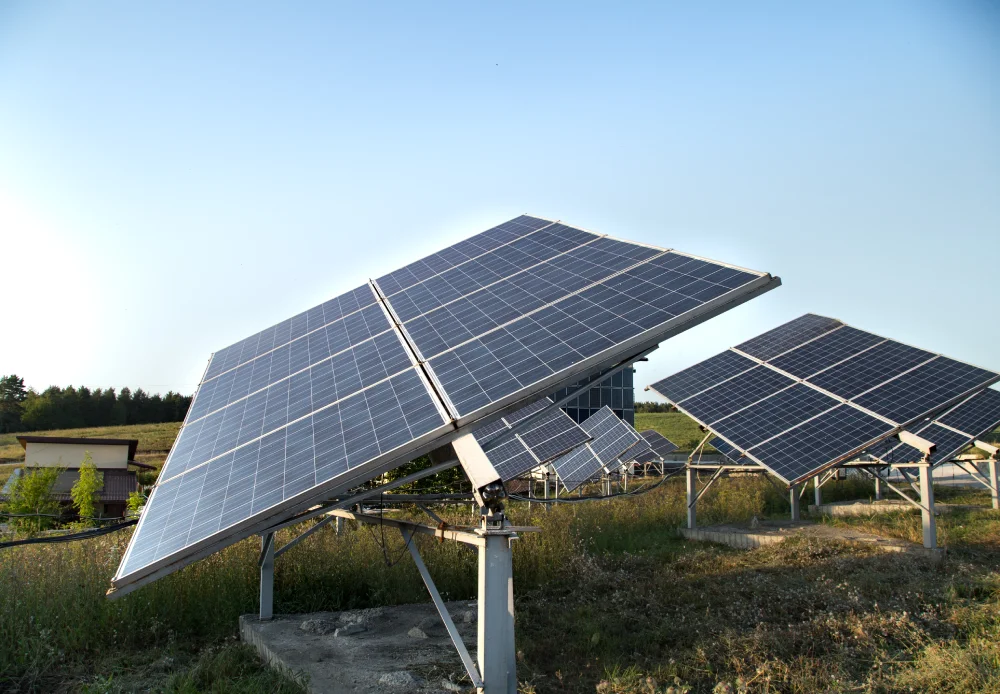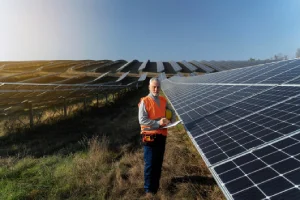


Residential
Harnessing solar power for agriculture is a smart and sustainable way to enhance farming efficiency and reduce dependency on conventional energy sources. Installing solar panels for agricultural land enables farmers to power equipment, operate irrigation systems, and reduce long-term energy costs. Solar energy for farming is especially effective in remote and rural areas where grid electricity is unreliable or unavailable.
A well-designed agricultural solar system supports solar-powered farming through solar water pumps, solar irrigation systems, and off-grid solar systems for agriculture, ensuring uninterrupted power for essential operations. Solar pumps for irrigation are an eco-friendly alternative to diesel pumps, helping farmers save money and reduce their carbon footprint.
Hybrid solar systems for farms combine battery storage and grid support, offering 24/7 power for agricultural needs. With solar-powered equipment for agriculture, farmers can increase productivity while promoting renewable energy for agriculture.
Sinthan Energy offers cost-effective solar solutions tailored to the needs of agricultural land. Our systems are eligible for government subsidies, making clean energy for agriculture more accessible and affordable. Choose Sinthan Energy for sustainable farming with solar and empower your land with reliable, green energy.

An on-grid solar system for agriculture provides reliable, cost-effective power by connecting to the grid. It helps reduce energy bills through net metering and supports sustainable farming, ideal for irrigation, machinery, and rural operations with stable electricity access.

An off-grid solar system for agriculture ensures uninterrupted power in remote areas without grid access. It stores solar energy in batteries, making it ideal for irrigation, lighting and farm operations, promoting self-reliance and sustainable farming practices.

A hybrid solar system for agriculture combines grid power and battery backup, ensuring continuous energy for irrigation and farm operations. It offers flexibility, reduces electricity costs and supports sustainable farming—even during power outages or low sunlight conditions.